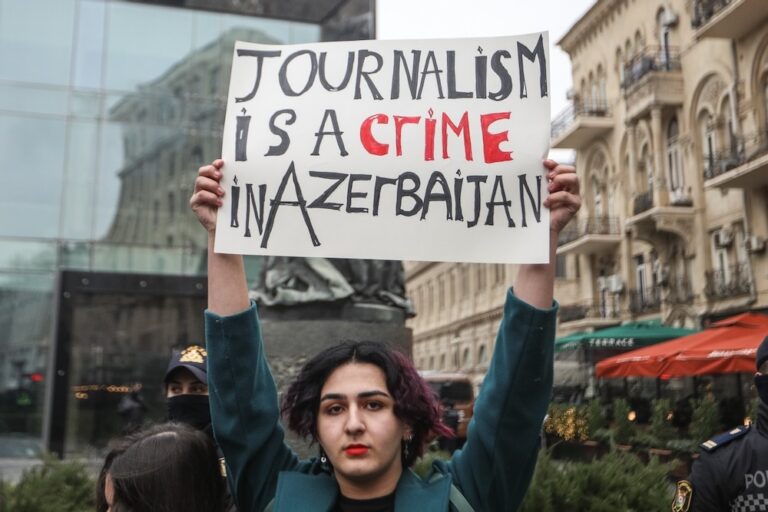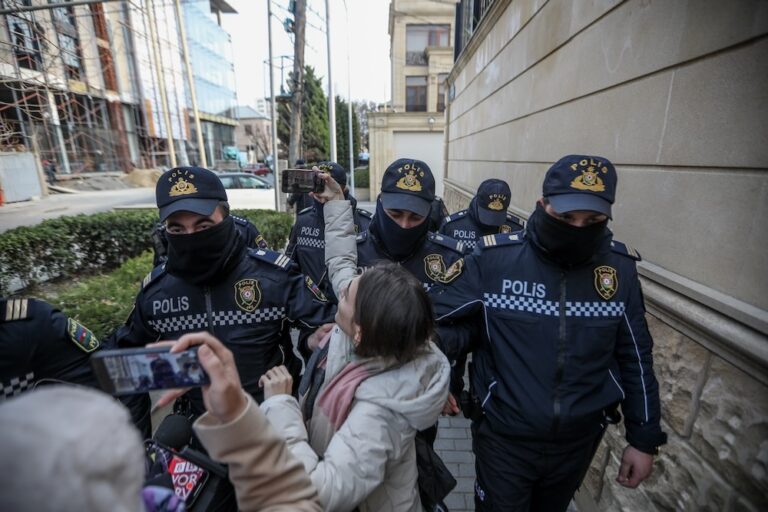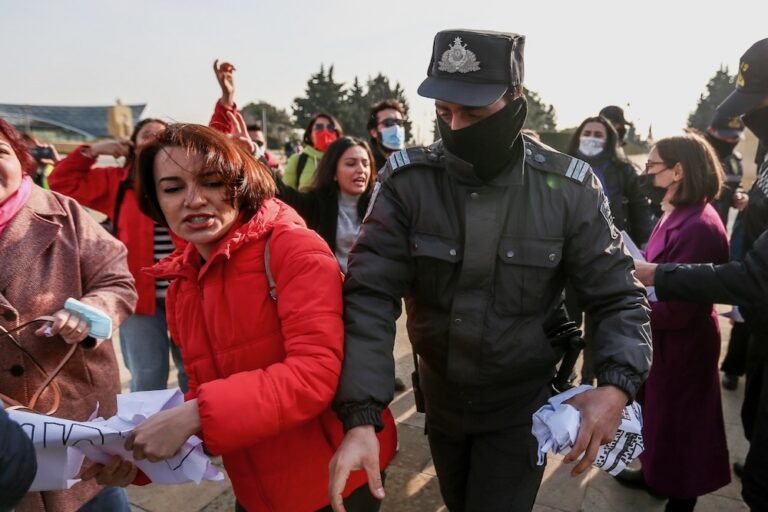**For background information, see IFEX alerts of 15 January 1998, 31 July 1997, 9 December 1996, 6 August 1996 (CPJ/IFEX) – According to information made availably on 31 July 1998, an advisor to Azerbaijan’s president Heidar Aliyev has confirmed to Committee to Protect Journalists (CPJ) that the leader of the oil-rich nation has pledged to […]
**For background information, see IFEX alerts of 15 January 1998, 31 July
1997, 9 December 1996, 6 August 1996
(CPJ/IFEX) – According to information made availably on 31 July 1998, an
advisor to Azerbaijan’s president Heidar Aliyev has confirmed to Committee
to Protect Journalists (CPJ) that the leader of the oil-rich nation has
pledged to sign a decree within the next week to 10 days abolishing
political censorship in the country.
Shahin Aliyev, the president’s legal advisor, confirmed by telephone today
that he had received a mandate from President Aliyev to announce the
decision during his trip to Washington, which ended on 30 July 1998. He made
the announcement on 29 July 1998, during a meeting at the National
Democratic Institute.
Aliyev told CPJ that a presidential decree has already been drafted ending
“six years of censorship” in Azerbaijan “because it is necessary to
guarantee 100 percent transparency during the presidential elections”
scheduled in October.
Aliyev said the decree would result in the complete dismantling of the
state’s censorship apparatus, the Main Administration for the Protection of
State Secrets, or Glavlit (the acronym for Soviet censorship). “Glavlit will
disappear,” he said.
While it was the previous president, Abulfaz Elchibey, who re-instated
military censorship at the start of Azerbaijan’s conflict with neighboring
Armenia over the disputed Nagorno-Karabakh enclave, Heidar Aliyev re-imposed
Soviet-style political censorship after coming to power in 1993. Editors
have had to bring every issue of their newspaper or magazine to Glavlit to
get the censor’s stamp of approval before publication.


